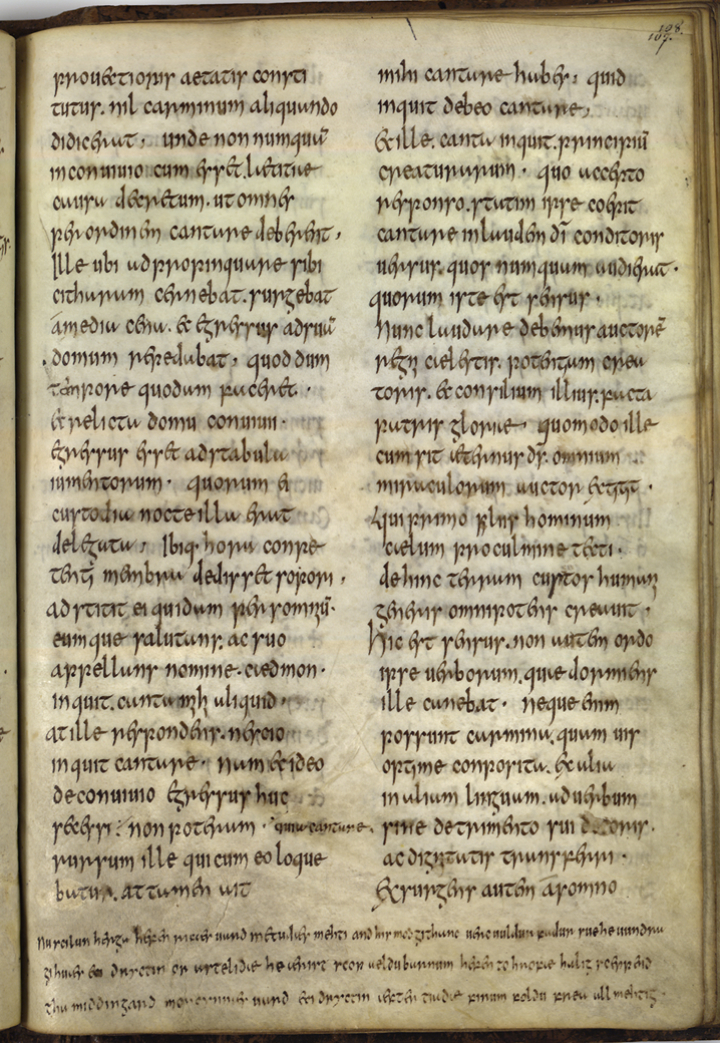
As he had on other occasions when faced with this challenge, he left his friends rather than face the humiliation of being forced to sing. Acutely aware that he had no talents as a poet or musician, he knew he would be embarrassed when it was his time to perform. One evening at the monastery, Caedmon was faced with just such a challenge. Caedmon had, on many occasions, slipped quietly from the crowd as the harp made its way toward him and it appeared that a song would be demanded. It was a common practice of the time for those present at any feast or gathering to take turns performing and entertaining. It is said that his talent sprang from a dream. The story of how he developed his talent is wrapped in the mist of folklore. Reports indicated that Caedmon was illiterate and demonstrated no particular talents. As a lay brother, he did not have the responsibilities of a monk, but rather served the monks by tending to their livestock. According to Bede, Caedmon was a herdsman and lay brother at Whitby, a monastery founded in 657 by St. Bede lived in the generation following Caedmon and was his closest contemporary and most accurate observer. Bede the Venerable (673-735), captured what little information was available and published it in the Ecclesiastical History of the English Nation, around 730.

Information about Caedmon's life is sketchy. 680) is recognized as being among the earliest of the Christian poets.

Christian or religious poetry adapts biblical narrative and uses the poetic form to present a moral perspective. Heroic poetry is based in Germanic legend and history. Old English poetry appears in two forms: heroic and Christian.


 0 kommentar(er)
0 kommentar(er)
